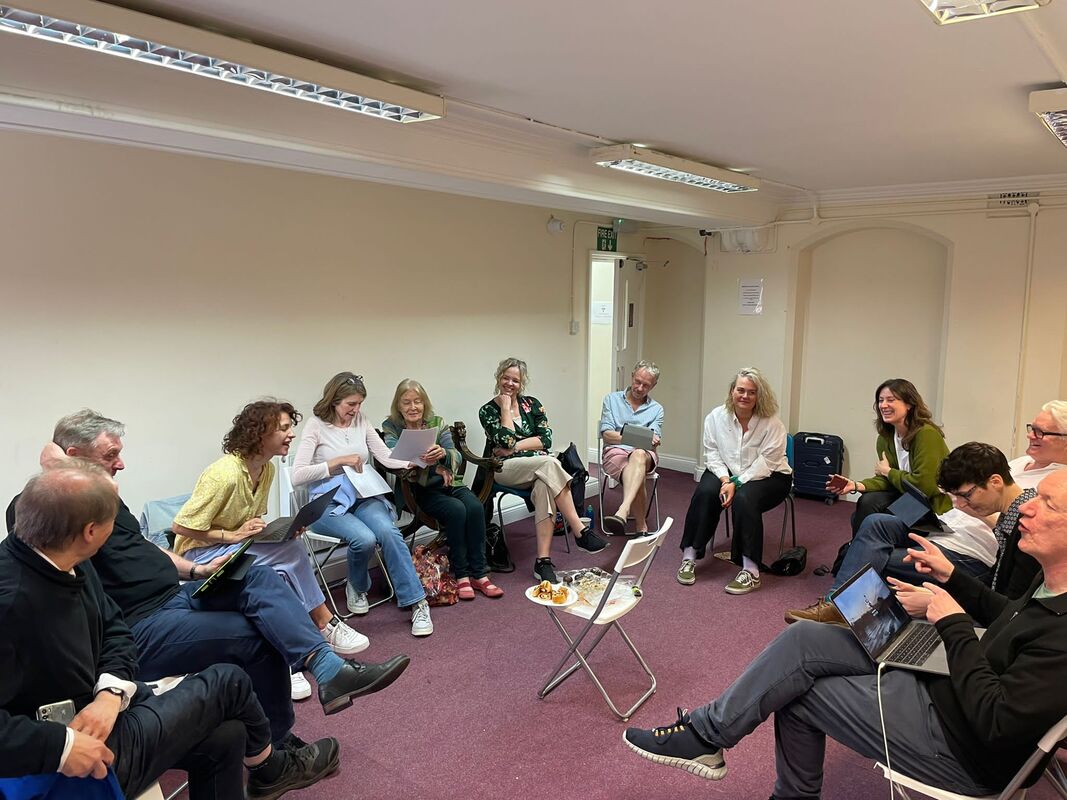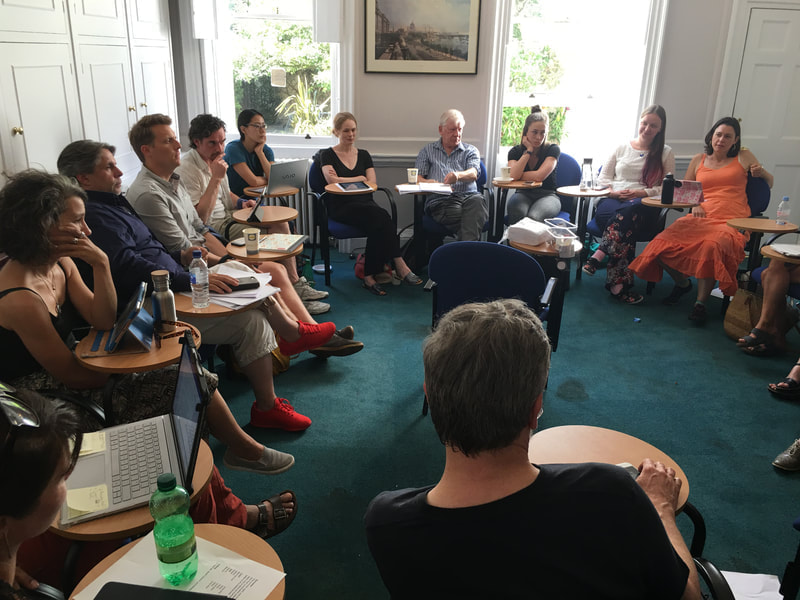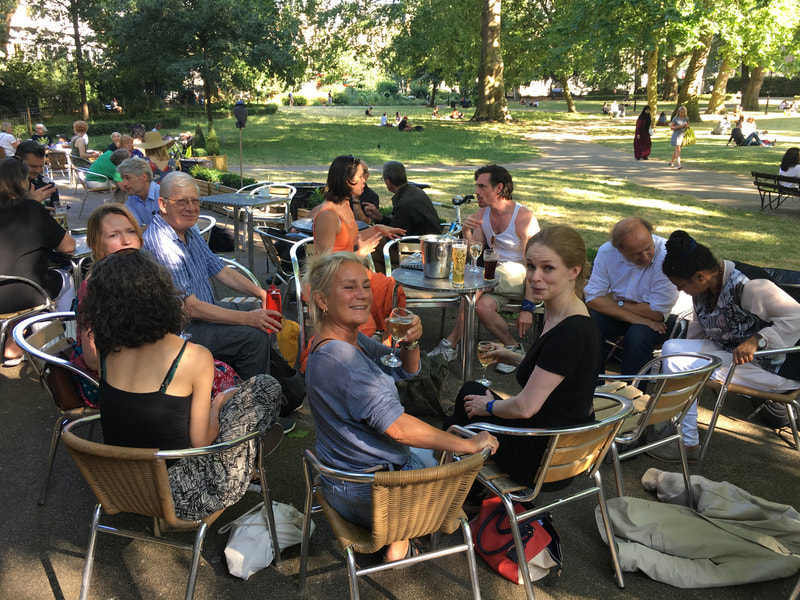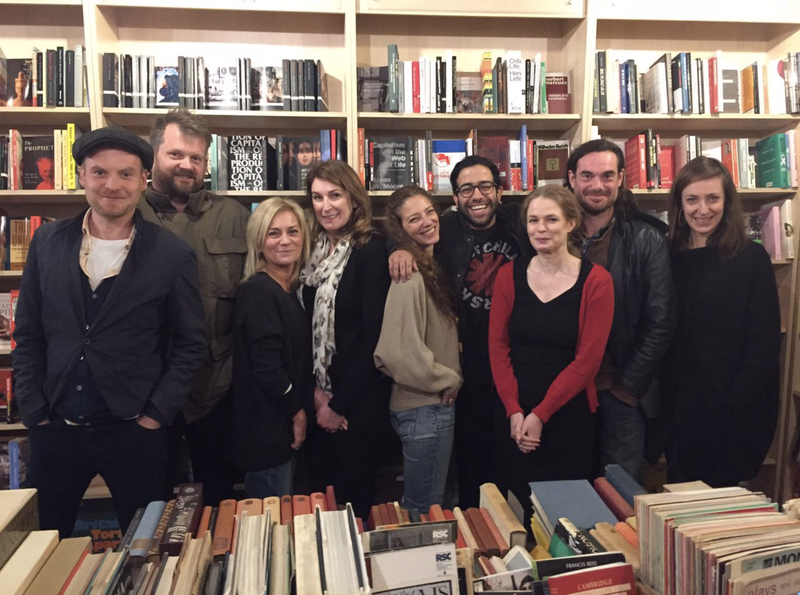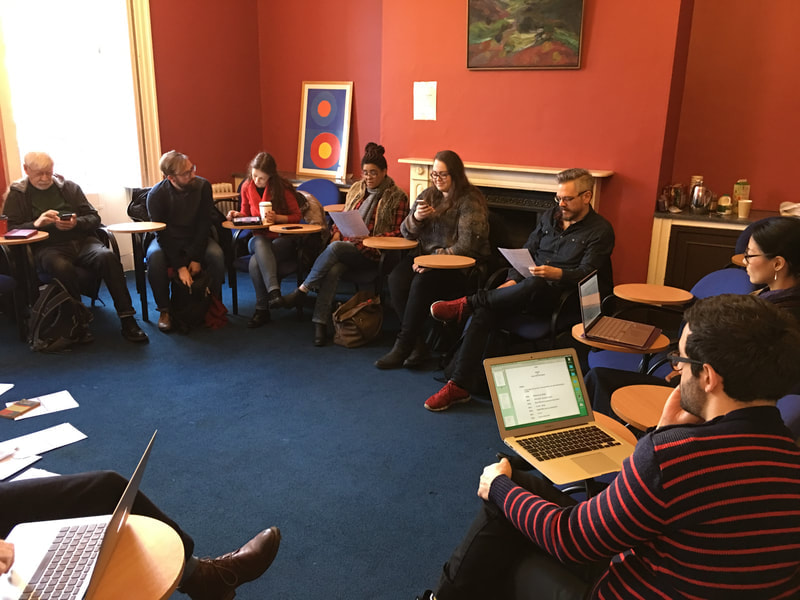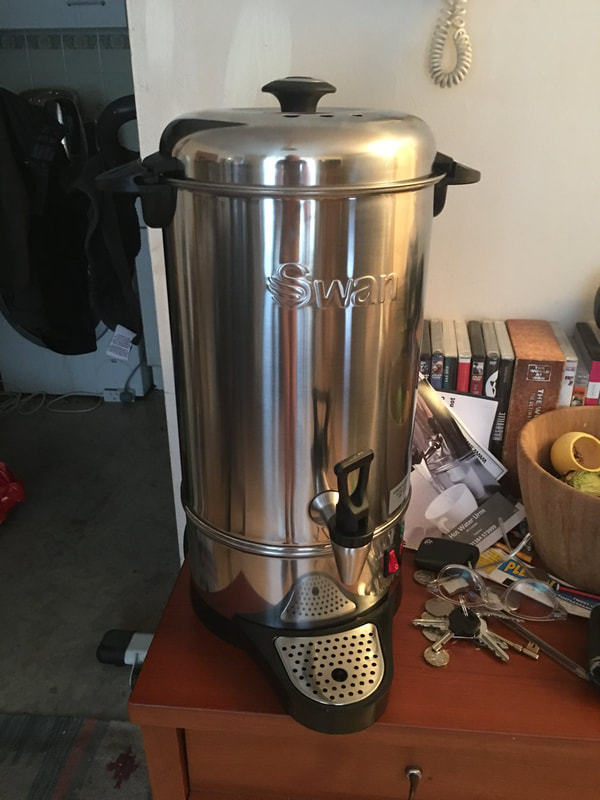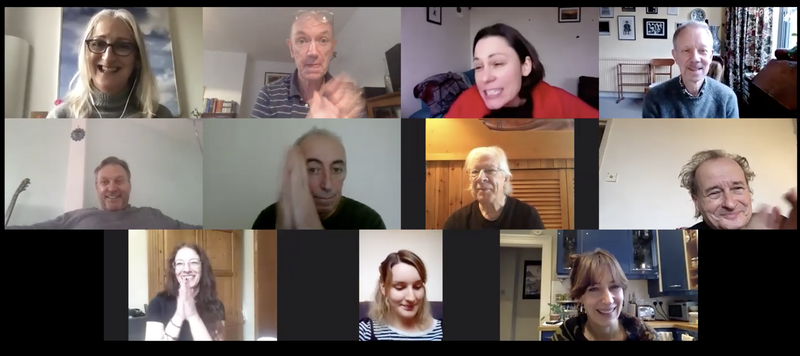In 2005 a group of actors, writers and directors started to meet to read plays, out of which Presence Theatre was created. Eighteen years on, its ethos remains largely the same: for actors, writers and directors to discover and engage with great plays and performance scripts with a view to enriching and expanding the range of the current UK performed repertoire, and to encourage new voices
How it Works
In-venue or - sometimes - via Zoom the readings are entirely for the participants, usually 10 - 12 practitioners - actors and industry guests, including directors - and sometimes writers to hear their new script being read. Attendance usually consists of regular and occasional participants with some new attendees. There is no audience, and scripts are forwarded for downloading to personal devices 48 hours or so before each session, with a small number of paper copies available on the day at 'in person' sessions. No prep is expected, as spontaneous 'in-reading' discovery is a major positive aspect of the experience, with participants spontaneously exploring characterisations and responses as they read and as more information is uncovered in the script.
We operate a general principal of 'fair gos' as far as is possible across each script (so with roles switched and shared around between each scene etc). This has the huge benefit that characters are usually realised as a varied 'tessellation' of offers and insights from several participants. In fact it is often the more 'counter-intuitive' 'castings' (in term for example of gender, physicality or age terms) that generate the most vivid discoveries and characterisations. Playwrights love this as a way of offering multiple insights and possibilities for their work. For participants, we find this approach offers a great opportunity for creative exploration, while also being great sight-reading practice.
The readings are also a brilliant way of expanding knowledge of new writing and existing and historic repertoire. Practicing all this amidst a group of like-minded, similarly engaged and hugely supportive and insightful colleagues creates a great sense of spontaneous ensemble, which is then further developed in brief discussions/sharings of response after each script, as well as through general chat and socialisation at tea-breaks etc. Most sessions are then 'written up', with names of participants recorded and details/analysis of each work, in our reading group blog
In-venue or - sometimes - via Zoom the readings are entirely for the participants, usually 10 - 12 practitioners - actors and industry guests, including directors - and sometimes writers to hear their new script being read. Attendance usually consists of regular and occasional participants with some new attendees. There is no audience, and scripts are forwarded for downloading to personal devices 48 hours or so before each session, with a small number of paper copies available on the day at 'in person' sessions. No prep is expected, as spontaneous 'in-reading' discovery is a major positive aspect of the experience, with participants spontaneously exploring characterisations and responses as they read and as more information is uncovered in the script.
We operate a general principal of 'fair gos' as far as is possible across each script (so with roles switched and shared around between each scene etc). This has the huge benefit that characters are usually realised as a varied 'tessellation' of offers and insights from several participants. In fact it is often the more 'counter-intuitive' 'castings' (in term for example of gender, physicality or age terms) that generate the most vivid discoveries and characterisations. Playwrights love this as a way of offering multiple insights and possibilities for their work. For participants, we find this approach offers a great opportunity for creative exploration, while also being great sight-reading practice.
The readings are also a brilliant way of expanding knowledge of new writing and existing and historic repertoire. Practicing all this amidst a group of like-minded, similarly engaged and hugely supportive and insightful colleagues creates a great sense of spontaneous ensemble, which is then further developed in brief discussions/sharings of response after each script, as well as through general chat and socialisation at tea-breaks etc. Most sessions are then 'written up', with names of participants recorded and details/analysis of each work, in our reading group blog
Over the last year we have read neglected classics, international new translations, new UK plays (sometimes with writers in attendance) and we have many more discoveries and rediscoveries planned for the year ahead.
In terms of financial support for the refreshments offered (tea/coffee/surprisingly good biscuits etc), the room provision, photocopying, admin etc. we request a (discretional) contribution of, say, £5 from participants (details on the day).
In terms of financial support for the refreshments offered (tea/coffee/surprisingly good biscuits etc), the room provision, photocopying, admin etc. we request a (discretional) contribution of, say, £5 from participants (details on the day).
If you are an actor/practitioner who would like to join us,
or would simply like to know more,
please contact Colin Ellwood at:
[email protected]
or would simply like to know more,
please contact Colin Ellwood at:
[email protected]
Once you are on the invitation list, you get emailed invitations around 10 days prior to each monthly session (usually taking place usually on the final Friday of each month, and usually 11am - 5pm for 'in-venue' sessions). It is of course understood that if work or other pressing obligation then comes up prior to a session, no problem with cancelling. Currently we are running both in-person (at a variety of venues currently being explored) and also via zoom
Writers whose work the new Reading Group has looked at include Jon Fosse, N.F. Simpson, P.O. Enquist, Franz Xaver Krötz, Henrik Ibsen, Samuel Beckett, Fredrik Brattberg, Joseph Chaikin, Sam Shepard, Knut Hamsun, Eugene O' Neill, Griselda Gambaro, Hannah Moscovitch, Jean-Claude van Itallie, Nis-Momme Stockmann, M. H. Hallum, Erling Jepsen, Michael Bhim, Jón Atli Jónasson, Sebastian Thierry, Anna Ellinor Sundström, David Mamet, Bo Hr. Hansen, David Watson, Ben Ockrent, Nick Payne, Sean Buckley, Joel Horwood, Harold Pinter, Alexandra Wood, Alfonso Sastre, David Hirson, Simon Stephens, Alice Birch, Andri Snær Magnason, Þorleifur Örn Arnarson, Esteve Soler, Chris Hannan, Ayfer Tunç, Thorvaldur Thorsteinsson, Bertolt Brecht, Bola Agbaje, Trevor Griffiths, Maya Arad, Alexander Blok, Wallace Stevens, Gregory Motton, Lope de Vega, Franz Kafka, Christian Lollike, Stan Francisco, José Sanchis Sinisterra, Ramón del Valle-Inclán, Edward Bond, Maria Milisavljevic, Charles Reznikoff, Laura Naumann, Arne Lygre, David Greig, Maria Tryti Vennerød, Wolfram Lotz, Jussi Moila, Caryl Churchill, Henrik Szklany, Jonas Gardell, Frank O' Hara, Alexander Vvedensky, Snoo Wilson, John van Druten, Daniil Kharms, Nikolai Zabolotsky, Chris New and Charlotte Keatley.
In April 2019 Kirsten Hazel Smith visited the to have read her draft translation of Unwritten Letters by Estelle Savasta, in process towards a potential production at The Bush; in June 2018 Simon Stephens attended the group to hear the current draft of his new play Ria, prior to its submission to the commissioning theatre; In June 2017 Charlotte Keatley brought along a working draft of her latest play, as did Chris New in May 2017. In February 2016 Simon Stephens attended the group as we read and discussed his early play Country Music and in May and November 2015 we welcomed Gwen Mackeith, translator of the Argentine writer Griselda Gambaro. Since then we have welcomed a huge range of emerging and established writers including Simon Jaggers and expanded internationally with work and playwrights from Quebec and the US as well as many Norwegian new plays with playwrights in attendance, often in partnership with Unge Viken Theatre, Norway, with whom we have collaborated to bring six new playwrights over to London to hear their work read and workshop, with four of them then having extracts presented at an event for UK theatre practitioners at the Norwegian Embassy in London (between 2020 and 2022). Elsewhere, The Deep by Jón Atli Jónasson, Now That's What I Call Music by David Watson, The Frugal Horn by Nick Payne and The Returnings by Fredrik Brattberg have also all gone on to be performed as staged readings. During the covid 'lockdown' period we ran regular and frequent zoom reading sessions that were a professed 'lifeline' for many in our community
